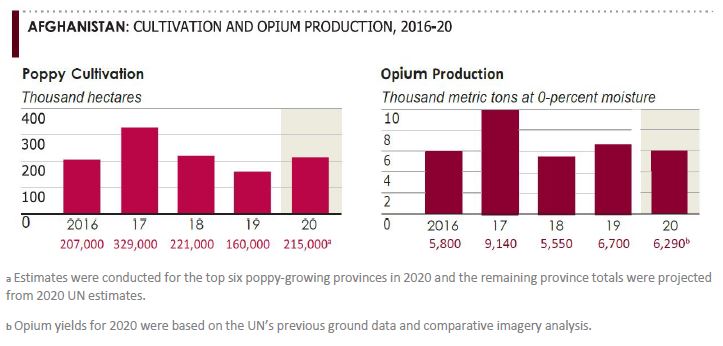The Office of National Drug Control Policy Releases Data on Afghanistan Poppy Cultivation and Potential Heroin Production
WASHINGTON, D.C. – Today, the Office of National Drug Control Policy (ONDCP) released the annual United States Government estimates that measure poppy cultivation and potential heroin production in Afghanistan. After a two-year decline, the data shows cultivation increased in 2020, while overall production was stable. Cultivation increased in five of the six top poppy-growing provinces. These provinces accounted for 86 percent of the 2020 crop estimate.

More than 80 percent of the global heroin supply originates in Afghanistan. However, 90 percent of heroin seized and tested in the U.S. originates in Mexico, according to the Drug Enforcement Administration.
The United States supports Afghanistan’s efforts to counter the illicit narcotics trade. Currently, the United States funds projects in conjunction with the Ministry of Public Health and the Ministry of Counter Narcotics and supports the United Nations Office on Drugs and Crime’s Children’s Program (“GLOK42”) in Afghanistan.
The President’s FY22 budget request calls for $10.7 billion to support research, prevention, treatment, harm reduction, and recovery support services, with targeted investments to meet the needs of populations at greatest risk for overdose and substance use disorder.
The FY22 budget request also includes significant investments in reducing the supply of illicit substances. In particular, it includes important increases in interdiction efforts, which include air and maritime activities to seize drugs in transit and deter access to routes, enhancements of source nations’ ability to interdict drugs, and efforts along the United States border to interdict the flow of drugs. The FY22 request also continues to support efforts to strengthen source country programs that address drug trafficking and corruption, strengthen the rule of law and anti-corruption activities, promote human rights, and support development programs.
